Social commitment and craft excellence for a sustainable future
TIMENDOTES, a Moroccan crafts association, supports artisans for a sustainable future. It guides them to new markets, promotes innovation and design skills, and enables women’s active participation in sfifa weaving.
The Association is committed to preserving cultural heritage while empowering women artisans and fighting poverty. It aims to create a balance between preserving heritage and driving the creative economy while offering financial, moral and psychological support to improve the quality of life of craftspeople.
TIMENDOTES offers training workshops for artisans to acquire professional skills and master innovations and design motifs in sfifa weaving. It also supports the transmission of craft skills to new generations.
In social terms, the Association promotes the value of the work of craftspeople, builds equality between men and women, and asserts the right of craftspeople to social and cultural participation, recognizing their valuable contribution to society’s wealth. Economically, TIMENDOTES ensures a sustainable income by training craftspeople in the needs and requirements of today’s markets.
By removing barriers to education and employment, TIMENDOTES preserves ancestral know-how and creates opportunities for a prosperous Moroccan craft sector.
Women Artisans and the Impacts of the Global Pandemic
At first, the sfifa artisans were drawn solely from the province of Taounate, where men learn from a very early age to hand weave sfifa. In 2020, The TIMENDOTES Association decided it was imperative to work with women from Al Haouz province, a predominantly rural subdivision of the Moroccan region of Marrakech-Safi. The capital is called Tahannaout, and the region is famous for carpet weaving. Many designers, including icons of mid-century modernism like Corbusier and Frank Lloyd Wright, incorporated this region’s striking geometric patterned rugs in the interiors of their architectural projects.
However, the region has experienced an enormous loss of income from tourism due to the pandemic and a related decline in sales of carpets.
TIMENDOTES and Women Artisans: Crafting a Better Future
A core aim of the TIMENDOTES Association is to put women and men on an equal footing in learning all the steps of the sfifa weaving process, taking ownership and benefiting from this skill. In the current context, the division of labor within weaving is highly gendered, reflecting wider societal mores and ideas that value men’s labor more than women’s. As we know, this is a universal problem, and many critiques of development now center around how well-meaning project interventions can serve to reinforce, or at best, leave undisturbed, unequal relations of gender.
A key example of gendered inequality in the craft supply chain is drawing and design, an arena of practice currently controlled by men within craft communities. Moroccan anthropologist Naima Chikhaoui writes, » these women cannot create a power they cannot acquire because it is restricted to men. Creativity always needs recognition, and female creativity is rarely recognized.”
As Amine reflects on his years of experience with craft producer communities:
“Currently, the preparation of patterns is mainly reserved for men. On the one hand, this is because men are unwilling to share their knowledge and on the other, because women have little time to devote to this learning process, as they are busy with their children and household chores. Women are, therefore de facto relegated to weaving without having the opportunity to evolve and appropriate other aspects of this know-how. Muslim culture, like so many others worldwide, considers weaving to be a craft that preserves women because it allows them to stay at home. It is, therefore, all the more vital for them to master all aspects of it to provide for themselves properly.”
He adds : “We have a Moroccan proverb: « The craft that doesn’t enrich, covers up ».
Women’s empowerment cannot be achieved through economic development alone. Instead, women’s empowerment and social inclusion is governed by educational, cultural, social, structural and contextual restraints that rise above financial aid. Giving women the opportunity and tools to create designs is a small but significant step in challenging the gendered nature of value and access in the making process.
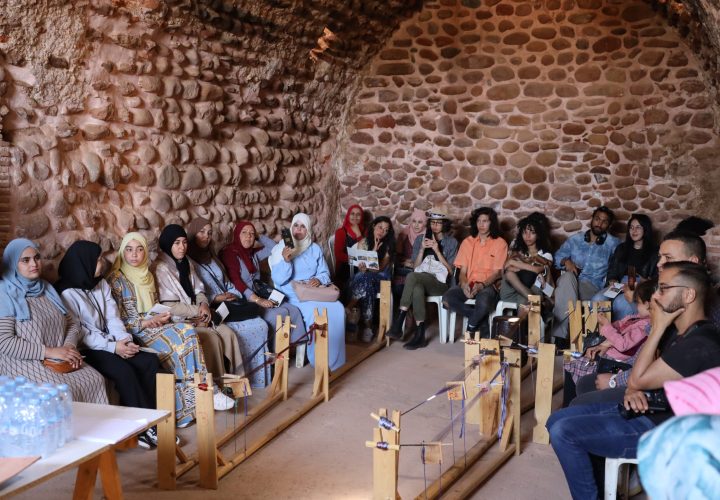
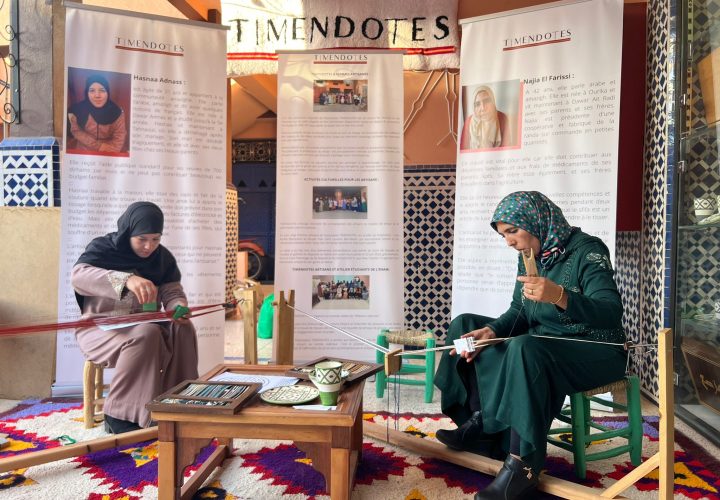
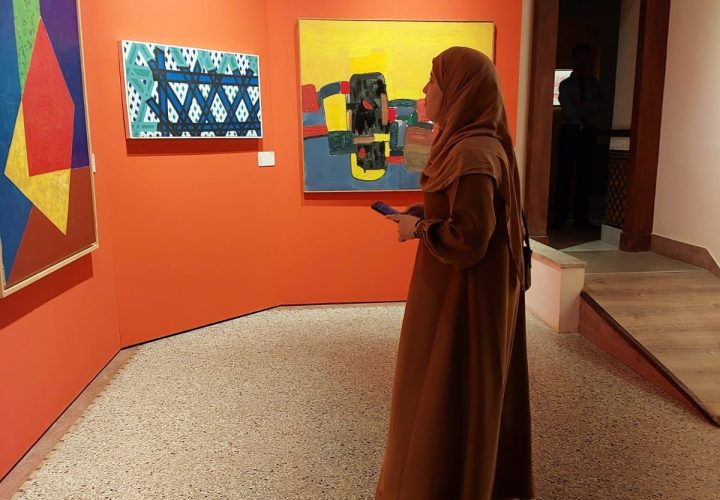
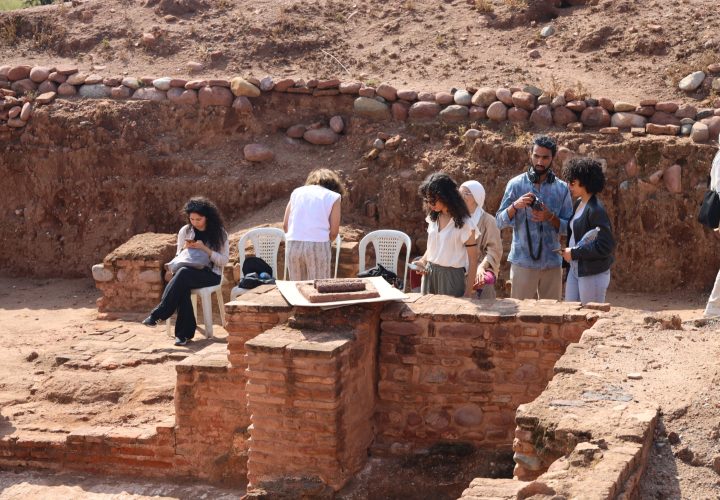
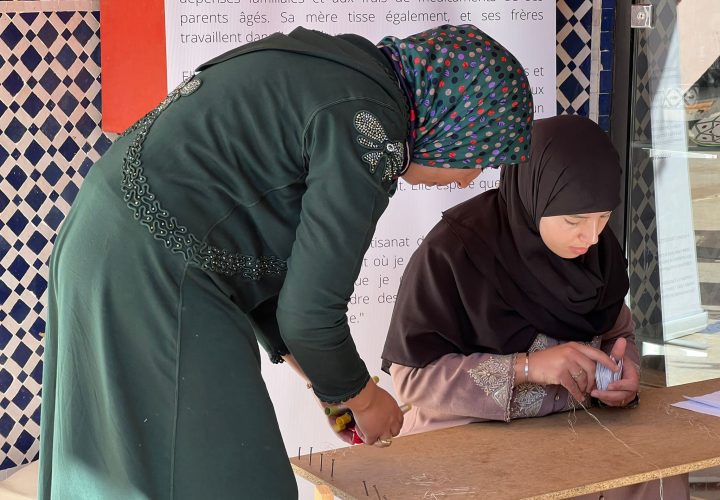
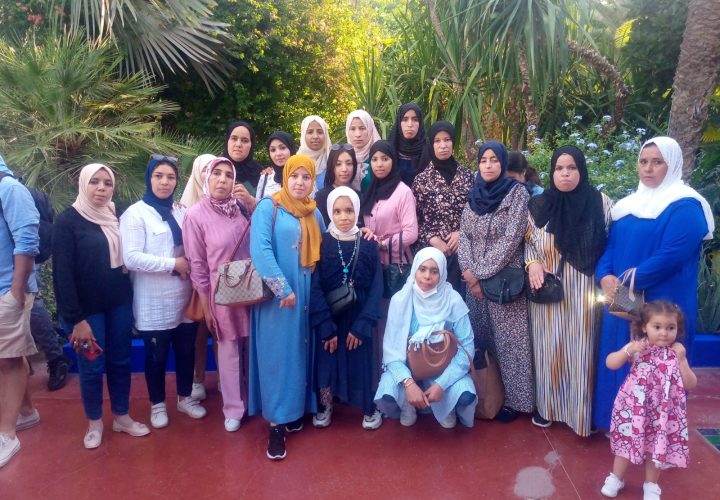
Co-creating new learning through embodied knowledge.
Celebrating the intellect, self-expression and skill of the artisan
Taking the artisans on enriching cultural trips is designed to help them understand Morocco’s heritage and their role in continuity with that legacy. To help artisans make conceptual and practical connections to the cultural trips, they will be asked to develop a motif or inspiration from the trips into design patterns and a woven pieces. One of the core and long-term goals of The TIMENDOTES Association is to challenge ideas of artisans as merely skilled labor. Artisans will be given training opportunities to attain higher levels of skill so that those with the desire and aptitude can progress to becoming fully professional artisans. Part of this professional training will be to provide artisans with opportunities to develop dialogues between art, design and craft in their work and collaborate with designers from various fields including fashion and interiors. This also fits with TIMENDOTES’ core vision to encourage high-quality craft production and the transmission of knowledge to new generations of artisans.
The cultural trips are an important aspect of the psychological, emotional and cerebral work the Association’s is developing with the artisans. We recognize this is a long-term goal and requires strong foundations. Hence the following aspects of the training focus on the tangible and practical foundation for artisans to develop their design skills for craft in the future.
A key objective of the training is to enable each craftsperson to know the creative process from A to Z (from the idea phase to the sample, including the preparation of the thread, the creation of the motif, card weaving and color theory).
Given that card weaving sfifa is a decorative art comparable to embroidery, the artisans must learn mastery of the hand (the gesture), mastery of time, mastery of technique and excellence. There will be three possible outlets at the end of the training: to become an employee (if there are employment opportunities), to set up as an independent artisan, or to create a cooperative.
As part of understanding the artisans’ needs and aspirations for the training, we are committed to facilitating participatory dialogue through workshops that bring the artisans and other stakeholders together. By creating clear and consistent communication, the artisans’ expectations can be properly understood, and they can be better prepared for engagement in the professional domain.
Participatory workshops to analyze artisan’s needs and identify future project targets
TIMENDOTES’ first workshop was organized in September 2021, titled « Promoting Moroccan sfifa Heritage: From Originality to Innovation – Listening, Communicating, Trusting, » in collaboration with the Mohammed V Foundation, the National School of Architecture in Marrakech, representatives from the Ministry of Crafts, as well as experts in gender and participatory community development. The objective of the workshop was to encourage openness and constructive dialogue among stakeholders, including the artisans themselves. The goal was to identify obstacles and drivers to improve teamwork and create dynamic ways to communicate needs and work together to achieve common objectives. The participatory analysis resulted in several recommendations: regular strengthening skills-strengthening workshops; examination of the sfifa value chain; identification of national and international sales points; and collaboration between crafts and architecture for a sustainable future.
Following this workshop, the Association organized a second workshop titled « Weaving Space: New Collaborations between Crafts and Architecture for a Sustainable Future. » This ambitious and visionary project brought together artisans from TIMENDOTES, architecture students, and professionals. The objective is to create a center of excellence that combines traditional Moroccan craftsmanship and modern design. More than just a building, it will integrate ancestral know-how with contemporary concepts to create a thriving ensemble of workshops, administrative offices, and community spaces. Using 3D modelling and virtual reality, students visualized sustainable, economically viable, and environmentally friendly structures. « Weaving Space » will provide opportunities for rural artisans and promote sustainable tourism.
By celebrating tradition and modernity, Weaving Space aims to create village centers of excellence for prosperity, poverty reduction, migration, and long-term economic growth.
Other accompanying workshops will be held, such as:
• How to give and receive feedback.
• How to better manage conflict.
• « Responsibility? How to take it and honor it”.
• Impact mapping.
• Ideation workshops.
• Consultation on communication tools, including websites and social media.
• Basic business training (understanding commercial documents, quality, negotiation, customer and supplier relations) as well as information about the rights and obligations of an employee.
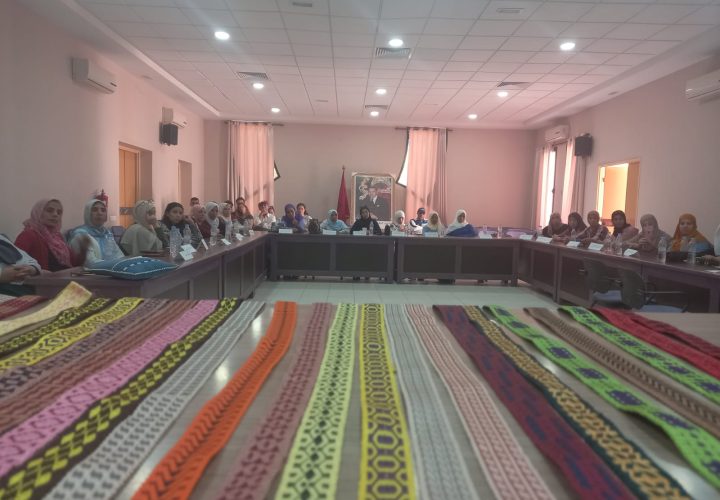
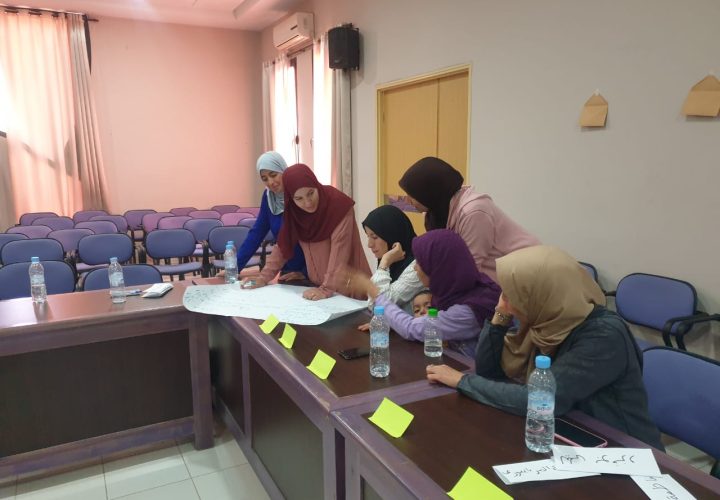
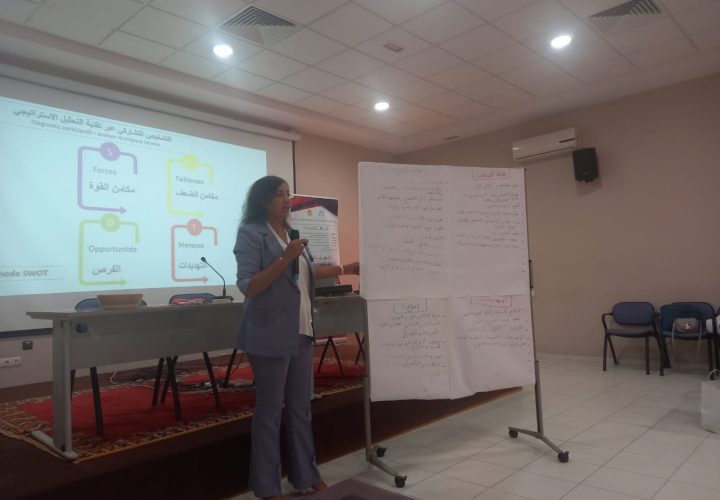
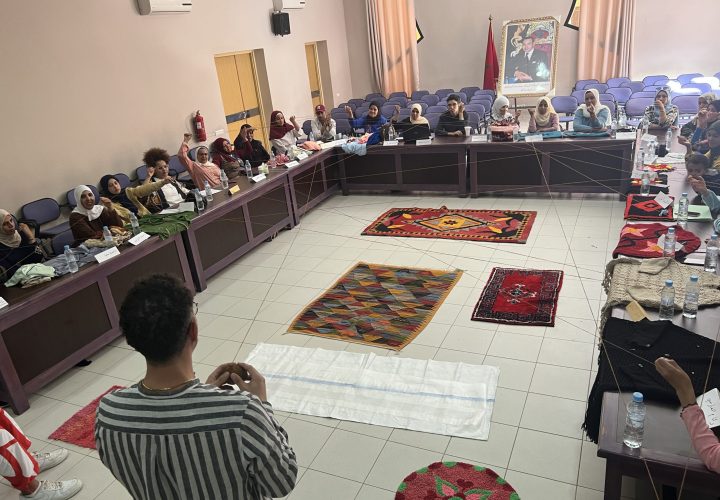
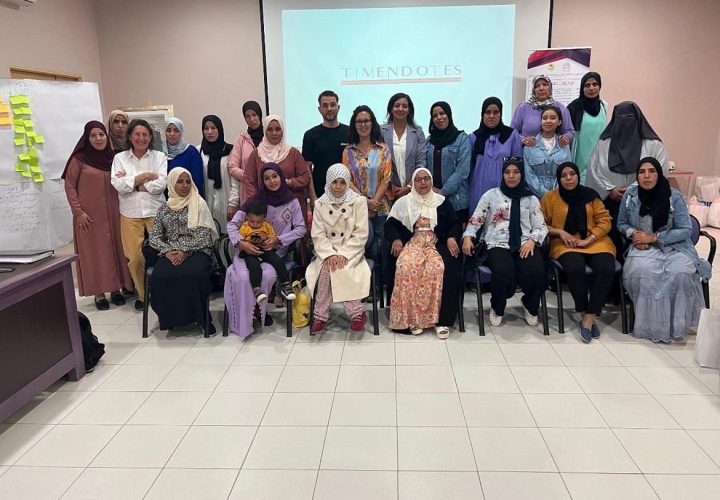
Safeguarding craft and balancing cultural heritage with the creative economy
In 2003 the UNESCO Convention for the Safeguarding of The Intangible Cultural Heritage signaled the importance of recognizing the need to preserve and promote crafts as a distinctive embodiment of traditional knowledge and skills. Article 22 of the Convention specifies that cultural heritage is manifested inter-alia in traditional craftsmanship.
“These traditional skills are in danger of disappearing due to the declining number of practitioners, lack of funds and the negative effects of globalization.”
UNESCO concludes that one of the most effective ways to achieve their safeguard is to guarantee that the bearers of the intangible cultural heritage continue to develop their knowledge and skills further and transmit them to younger generations.
Craft items are tangible, but the knowledge and skills to create them are intangible. It is, therefore, essential to research and document traditional craft techniques. The TIMENDOTES Association also recognizes the insight that: “The craft economy is not a set of immutable objects, but it is also a problem that navigates the role of the human in relation to the passing of time and the changing of place.”
UNESCO also recognizes that crafts have a fundamental role to play in the eradication of poverty through the empowerment of women. This is a crucial intersectional issue that the Association intends to address.
